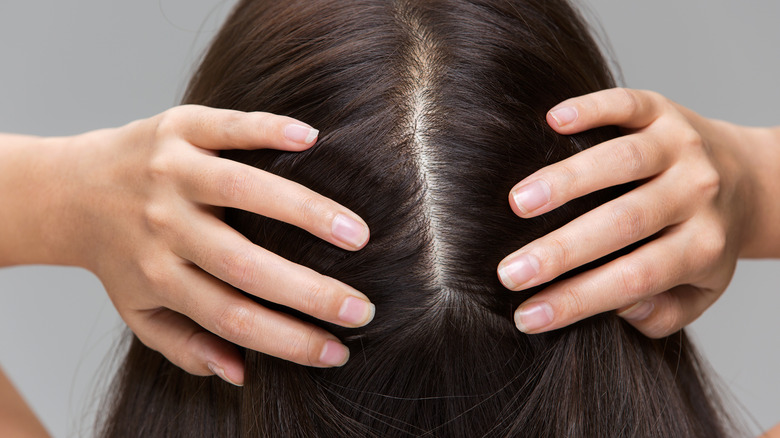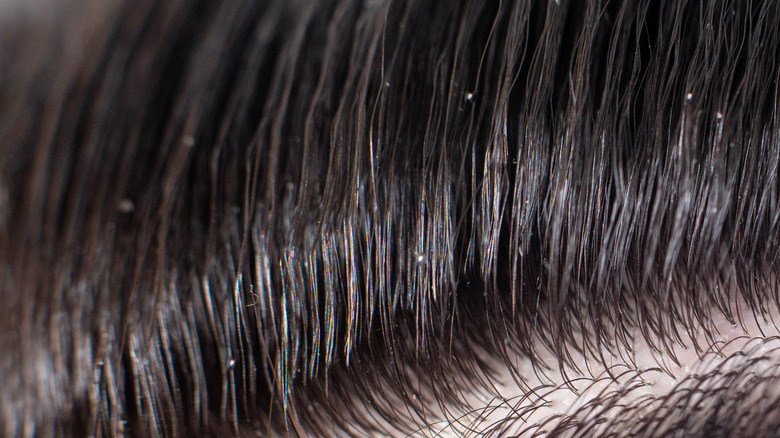This Is What's Really Causing Your Dandruff
In simplest terms, dandruff is dry skin that sheds from the scalp, and is typically found in the hair or on the shoulders (per Everyday Health). While this may sound gross, it is a very common problem. In fact, up to half of the world's population struggle with dandruff at some point, so if you have dandruff, you are far from alone (per Journal of Investigative Dermatology). Dandruff is particularly common among men and young people. People with oily skin, skin disorders, or certain health conditions such as HIV or Parkinson's disease are also more vulnerable to dandruff, according to Everyday Health.
That doesn't make dealing with dandruff any easier, though. Not only can it potentially be embarrassing, but dandruff can also cause your scalp to feel itchy, and it can be accompanied by dry or greasy scales on the scalp. In severe cases, yellow or red bumps may be seen across the hairline.
Your dandruff has several possible causes
Dandruff can often be pinned down to genetics. 23andme has found 487 genetic markers that are linked with dandruff. According to the Mayo Clinic, dandruff is more common in people with irritated and oily skin. Dry skin is another potential culprit, especially if you live in a dry and cold area. With this in mind, it is no surprise that dandruff is often worse in the winter (per Cleveland Clinic). The Cleveland Clinic notes that certain medications including lithium, buspirone, haloperidol decanoate, and chlorpromazine can also lead to dandruff.
You may be more prone to dandruff if you don't shampoo enough. If you go without shampooing, oil builds up on your scalp, which may result in dandruff (per Everyday Health). Fortunately, you can kill two birds with one stone by getting and using an anti-dandruff shampoo. According to Health Magazine, a few of the best anti-dandruff shampoos include Head & Shoulders, Nizoral A-D, and Dove DermaCare.

